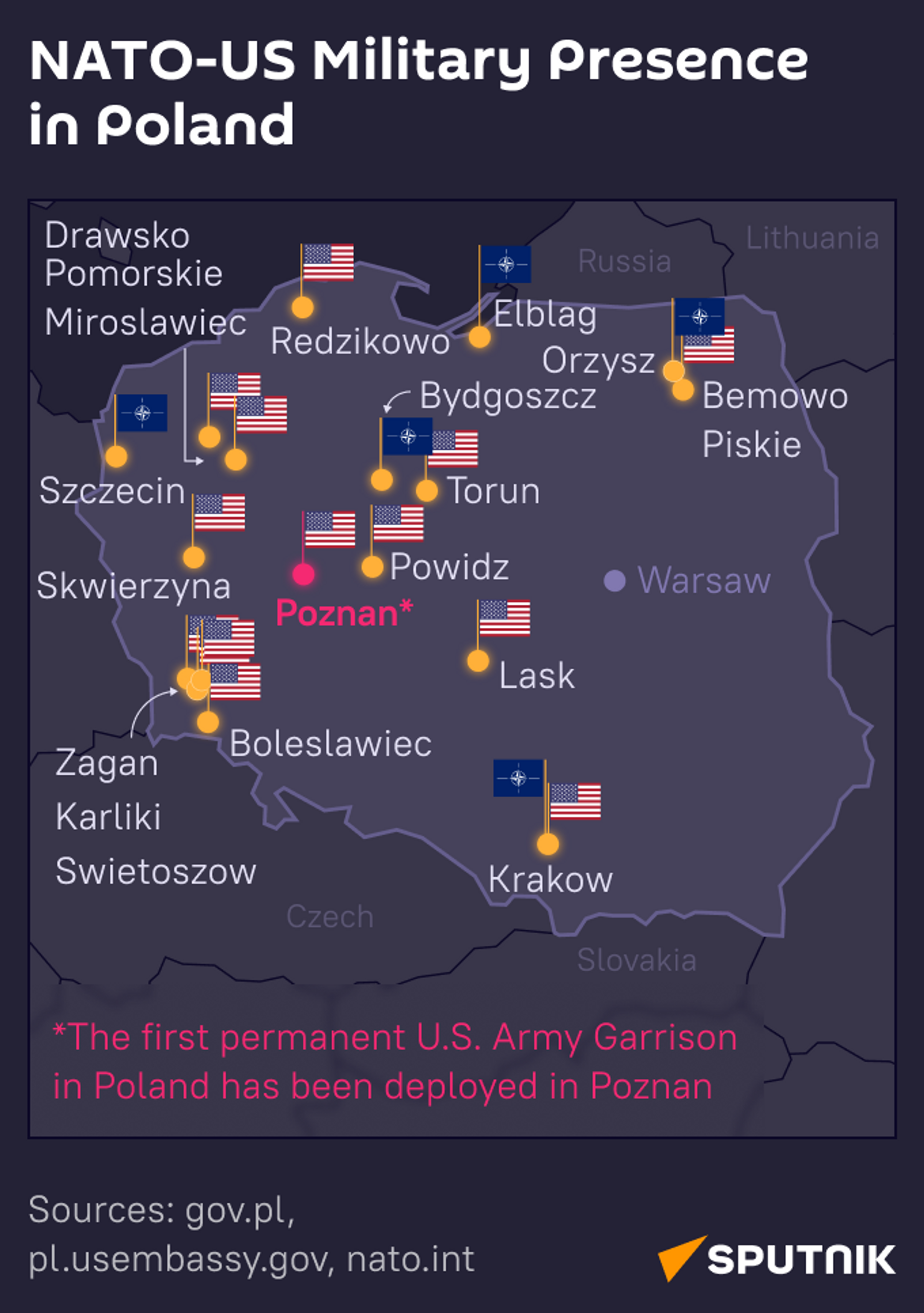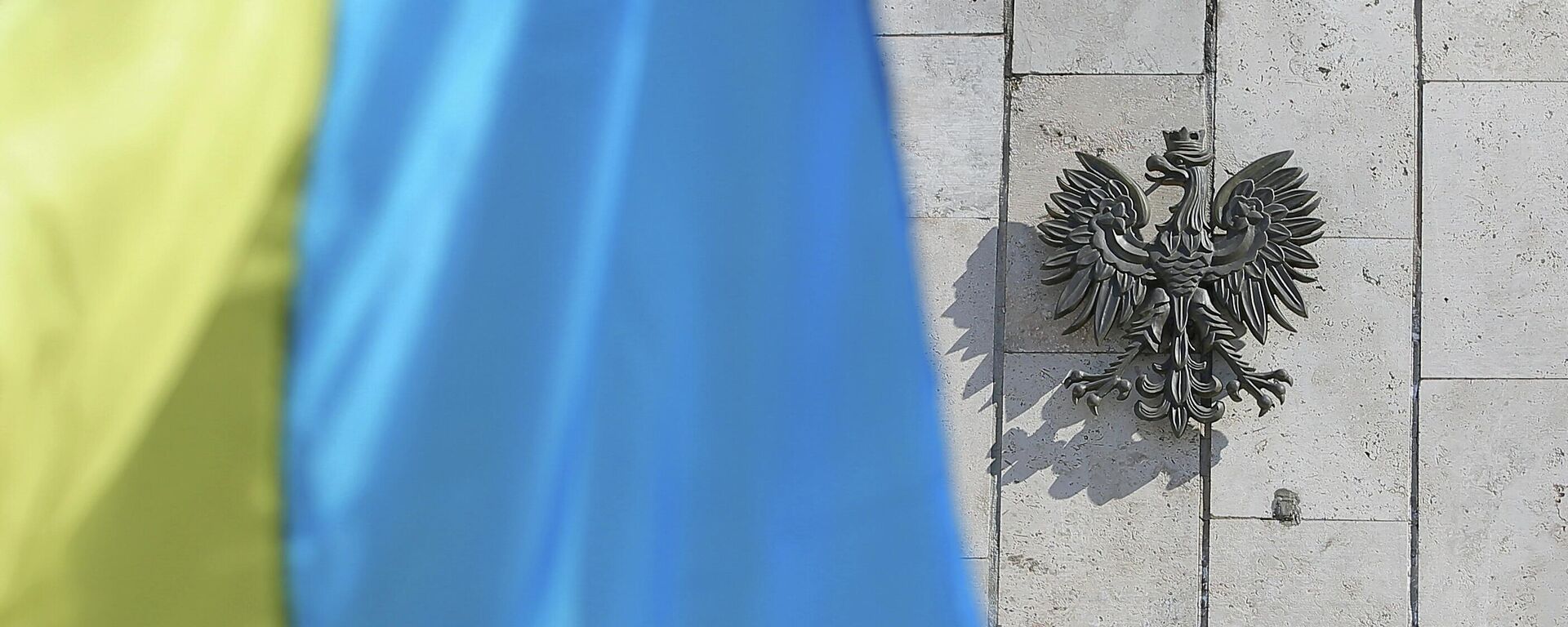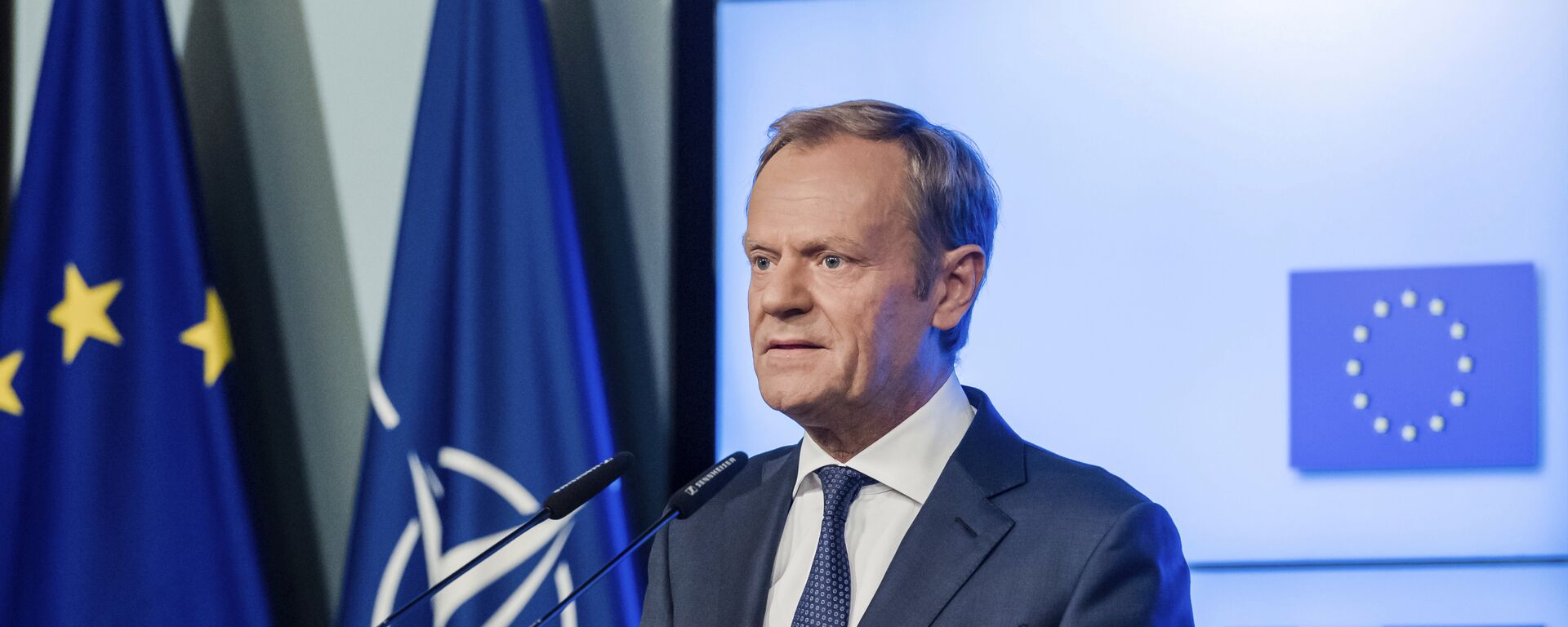US Hopes New Polish Gov’t Will ‘Seize Initiative’ and Become EU Leader

© Sputnik / Alexey Vitvitsky
/ Subscribe
With a more pliant government in power in Warsaw, the US hopes it can pressure Poland into redoubling its dedication to the cause of supporting Ukraine and bring it more ideologically into line with the rest of the European Union and even become the bloc’s leader, an expert told Sputnik. Still, the Polish far-right fears a betrayal by its rivals.
Since the nomination and approval of the pro-Brussels politician Donald Tusk to Poland’s premiership earlier this month, analysts have fretted over the potential for a reversal of policies due to the departure of a more conservative and Eurosceptic government.
Former Prime Minister Mateusz Morawiecki, of the right-wing Law and Justice Party from which President Andrzej Duda also hails, struggled to walk a tightrope of adhering to NATO and EU policy and defending Poland’s own national interests, particularly regarding the effects of the conflict in neighboring Ukraine on the Polish economy.
As Morawiecki’s government prepared to leave office following the Sejm’s no-confidence vote, ministers expressed fears that Tusk would backtrack on Warsaw’s commitments to a military buildup. Last year, Morawiecki declared that Poland would have “the most powerful land forces in Europe.”
“The Polish army must be so powerful that it does not have to fight due to its strength alone,” he said.
Then-Defense Minister Mariusz Błaszczak took a swipe at Tusk’s previous government, declaring: “We want peace, and if we want that we must prepare for war - in connection with that, we are strengthening the Polish Army in contrast to those who governed until 2015.”
Speaking with a Polish news outlet Rzeczpospolita on Wednesday, US Assistant Secretary of State for European and Eurasian Affairs James O'Brien said Washington was not at all concerned about whether Warsaw would keep to its previously signed military contracts, which Błaszczak has suggested were in danger.
“What is also important is that we have so far had very good cooperation and support for Ukraine from Poland and we will continue to have it from the new government,” O’Brien said. “I'm very encouraged by this. We know many members of the new authorities very well. We understand the values they defend. We are very happy to be able to work with them in the future.”
However, O’Brien went on to say: “We really want Poland to be a leader in the European Union.”
“I would like to emphasize that security cooperation between Poland and the US has always been very close, regardless of what the American administration and what the Polish government was like,” he said. “Today, we really want Poland to be a leader in the European Union. And this is the declared goal of the new government.”
Mateusz Piskorski, political observer and columnist for the Myśl Polska (Polish Thought) newspaper, told Sputnik that such a shift toward Warsaw “speaks to Washington’s lack of trust in Germany,” the largest country in Western Europe, who it had previously regarded as the EU’s leader.
“Despite all the pro-American statements of the German authorities, all Washington still retains a certain level of mistrust of Berlin,” he said.

NATO-US military presence in Poland mob
© Sputnik
“So naturally, the Biden administration - and I think that any American administration - will actually emphasize the role of Poland and other countries in the European Union. Plus, of course, I think it's also a matter of protocol.”
“In Poland, as a result of the elections, those politicians came to power who, due to ideological considerations and various connections from the past, have more trusting relationships with American democrats than the previous Polish government,” he observed. “This means that the conflict associated with, for example, issues of minority rights and so on, which previously were the reason for the conflict between Warsaw and Washington, have already disappeared. Therefore, within the framework of a certain protocol, such statements are made to welcome the new Polish government and the new political forces that have come to power.”
“In the long term, we can say that since the accession of Poland and other countries of Central and Eastern Europe to the European Union, certain processes, geopolitical processes, have been under way. Or more precisely, the United States hopes that those countries that are close to Washington will seize the initiative in Europe. Even then, some were saying that the United States is counting on certain countries, including Poland, to represent its interests in the European Union. Therefore, there is essentially nothing new in this statement.”
Piskorski said he “very much doubts” that Poland and the US have offensive plans for Russia or Belarus, now that Warsaw has become Washington’s chief deputy on the continent and the US has emphasized its military buildup.
“And as for Poland’s military potential - again, this is also a matter of time, because now it is difficult to answer what the policy of the new government will be. The previous government was proud that Poland spends 4% of GDP annually on the purchase of new weapons, in particular from the United States,” he noted.
“So, I think that it was simply in this way that the representative of the US State Department was trying to emphasize that in Washington they hoped for the continuation of those purchases, and maybe even an increase, for which the previous government was ready.”
“Why do they do this? Naturally, they represent the interests of their own military-industrial complex. And I think that, most likely, this means that the United States is expressing certain expectations, hopes associated with the continuation of all these orders, maybe even receiving new orders for its own military-industrial complex.”
“As for the involvement of the Polish armed forces in any conflicts, I think this is unlikely, because, firstly, I think that at least until the US presidential elections next year, the United States will not be interested in escalating tensions in different places, including in Central and Eastern Europe,” he noted.
“And secondly, there is still no desire of the Polish population for Polish citizens participating in any armed conflicts. Just the other day, an opinion poll showed that only 15% of the Polish population is ready to participate in an armed conflict even in the event of an attack on Poland. This suggests that only a small minority of Poles even consider the option of some kind of readiness for military service.”





